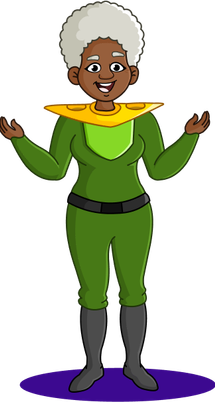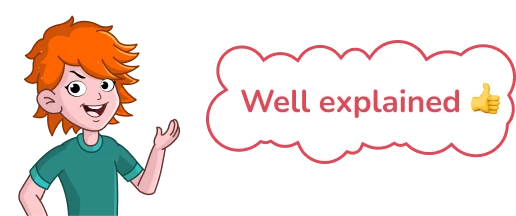
 120 Learners
120 LearnersLast updated on May 26th, 2025

Factors of 1363

Factors are the numbers that divide any given number evenly without remainder. In daily life, we use factors for tasks like sharing items equally, arranging things, etc. In this topic, we will learn about the factors of 1363, how they are used in real life, and the tips to learn them quickly.
What are the Factors of 1363?
The numbers that divide 1363 evenly are known as factors of 1363.
A factor of 1363 is a number that divides the number without remainder.
The factors of 1363 are 1 and 1363.
Negative factors of 1363: -1 and -1363.
Prime factorization of 1363: 1363 is a prime number, so it has no prime factors other than itself.
The sum of factors of 1363: 1 + 1363 = 1364
How to Find Factors of 1363?
Factors can be found using different methods. Mentioned below are some commonly used methods:
- Finding factors using multiplication
- Finding factors using the division method
- Prime factors and prime factorization
Finding Factors Using Multiplication
To find factors using multiplication, we need to identify the pairs of numbers that are multiplied to give 1363. Since 1363 is a prime number, it only has the multiplication pair of itself and 1.
Step 1: Multiply 1363 by 1, 1363 × 1 = 1363.
Therefore, the positive factor pair of 1363 is (1, 1363).
For every positive factor, there is a negative factor.
Finding Factors Using Division Method
Dividing the given numbers with whole numbers until the remainder becomes zero and listing out the numbers which result in whole numbers as factors. Factors can be calculated by following a simple division method
Step 1: Divide 1363 by 1, 1363 ÷ 1 = 1363.
Since 1363 is a prime number, it cannot be divided by any other numbers except 1 and 1363 without leaving a remainder.
Therefore, the factors of 1363 are: 1 and 1363.
Prime Factors and Prime Factorization
The factors can be found by dividing it with prime numbers. However, since 1363 is a prime number, it has no prime factors other than itself.
Using Prime Factorization: In this process, since 1363 is a prime number, it cannot be broken down further into other prime factors.
The prime factorization of 1363 is: 1363 itself.
Factor Tree
The factor tree is the graphical representation of breaking down any number into prime factors. However, since 1363 is a prime number, it cannot be broken down further using a factor tree.
The prime factorization of 1363 is: 1363 itself.
Factor Pairs Two numbers that are multiplied to give a specific number are called factor pairs.
Both positive and negative factors constitute factor pairs.
Positive factor pairs of 1363: (1, 1363).
Negative factor pairs of 1363: (-1, -1363).

Common Mistakes and How to Avoid Them in Factors of 1363
Mistakes are common while finding factors. We can identify and correct those mistakes using the following common mistakes and the ways to avoid them.

Factors of 1363 Examples

Problem 1
A group of 1363 students is going on a field trip. How can they be divided into groups such that each group has the same number of students?

Each group will consist of 1 student or 1363 students.
Explanation
Since 1363 is a prime number, the only possible groups are 1 student per group or the entire 1363 students in one group.

Problem 2
There is a single tree with 1363 apples. How can you equally distribute apples among workers?

Each worker can have 1 apple or all 1363 apples.
Explanation
Since 1363 is a prime number, you can only distribute 1 apple per worker or give all 1363 apples to one worker.

Problem 3
A shipment contains 1363 identical boxes. How can these be stored in a warehouse evenly?

They can be stored in a single stack of 1363 boxes or 1363 stacks of 1 box each.
Explanation
The factors of 1363 are 1 and 1363, so you can only stack all boxes in one pile or individually.

Problem 4
A book has 1363 pages. How many pages can be assigned for each day of reading if you want to read it evenly over a number of days?

You can assign either 1 page per day or read all 1363 pages in one day.
Explanation
Since 1363 is a prime number, the only division is 1 page per day or completing it in one day.

Problem 5
A theater has 1363 seats. How can the seats be arranged in rows that have the same number of seats?

The seats can be arranged in one row of 1363 seats or 1363 rows of 1 seat each.
Explanation
The factors of 1363 are 1 and 1363, meaning you can only arrange them in these configurations.


FAQs on Factors of 1363
1.What are the factors of 1363?
2.What is the prime factorization of 1363?
3.Is 1363, a multiple of 4?
4.Mention the factor pairs of 1363?
5.What is the square of 1363?
Important Glossaries for Factor of 1363
- Factors: The numbers that divide the given number without leaving a remainder are called factors. For example, the factors of 1363 are 1 and 1363.
- Prime Number: A number that has no divisors other than 1 and itself. For example, 1363 is a prime number.
- Factor Pairs: Two numbers in a pair that are multiplied to give the original number are called factor pairs. For example, the factor pair of 1363 is (1, 1363).
- Prime Factorization: The process of expressing a number as the product of its prime factors. Since 1363 is a prime number, it is its own prime factorization.
- Divisibility: The ability of one number to be divided by another without a remainder. For example, 1363 is divisible by 1 and 1363.
Explore More numbers


Hiralee Lalitkumar Makwana
About the Author
Hiralee Lalitkumar Makwana has almost two years of teaching experience. She is a number ninja as she loves numbers. Her interest in numbers can be seen in the way she cracks math puzzles and hidden patterns.
Fun Fact
: She loves to read number jokes and games.




